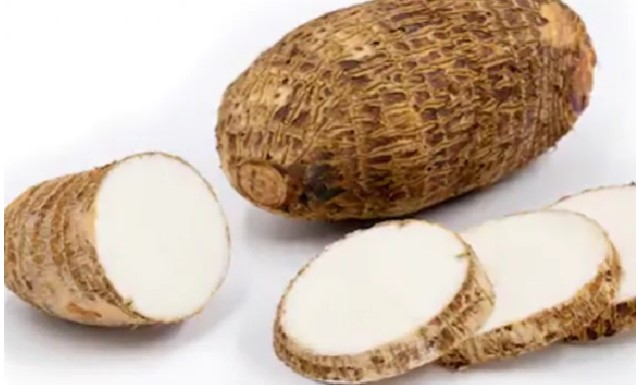Yam Nutrition Facts
Yams are a versatile and nutritious root vegetable that offers a range of health benefits. Their starchy texture and slightly sweet flavor make them a popular ingredient in many culinary traditions. In this article, we will explore the nutritional profile of yams, highlighting their key vitamins, minerals, and health benefits. Whether you’re looking to improve your diet or simply curious about this fascinating vegetable, read on to discover why yams deserve a place on your plate.

Nutritional Profile
Yams are packed with essential nutrients that contribute to overall health. Here is a detailed breakdown of the nutritional content found in a typical serving of yams:
Macronutrients
- Calories: 158 per cup (136 grams)
- Carbohydrates: 37.4 grams
- Protein: 2 grams
- Fat: 0.2 grams
- Fiber: 5.3 grams
Vitamins
- Vitamin C: 16.5 mg (27% DV)
- Vitamin B6: 0.3 mg (16% DV)
- Vitamin A, E, and K: Trace amounts
- Folate (Vitamin B9): 21.8 mcg (5% DV)
Minerals
- Potassium: 911 mg (26% DV)
- Manganese: 0.5 mg (25% DV)
- Copper: 0.2 mg (10% DV)
- Phosphorus: 67 mg (7% DV)
- Magnesium: 24.5 mg (6% DV)
- Iron, Zinc, and Calcium: Trace amounts
These nutrients play vital roles in maintaining various bodily functions, from supporting the immune system to promoting healthy skin and bones.
Health Benefits
1. High in Complex Carbohydrates and Fiber
Yams are an excellent source of complex carbohydrates and dietary fiber. These nutrients help regulate blood sugar levels, support digestive health, and provide a steady source of energy. The fiber content in yams also aids in maintaining a healthy gut and preventing constipation.
2. Rich in Vitamins A and C
Vitamins A and C are powerful antioxidants that help combat free radical damage and reduce inflammation. These vitamins are essential for immune function, skin health, and eye health. Although yams contain less vitamin A than sweet potatoes, they still provide a significant amount of these beneficial nutrients.
3. Abundant in Essential Minerals
Yams are a rich source of essential minerals such as potassium, manganese, and copper. Potassium helps regulate blood pressure and fluid balance, while manganese supports bone development and nutrient metabolism. Copper is crucial for forming hemoglobin and collagen, contributing to healthy connective tissues and energy metabolism.
4. Versatile and Satiating
Yams are not only nutritious but also versatile in the kitchen. They can be boiled, mashed, roasted, or fried, making them a great addition to various dishes. Their fibrous content makes them filling, which can aid in weight management by keeping you satiated for longer periods.

Frequently Asked Questions
What are the main differences between yams and sweet potatoes?
Yams are generally starchier and drier compared to sweet potatoes, which are sweeter and moister. While they are often confused, true yams have a rough, scaly skin and are typically larger than sweet potatoes.
How can I incorporate yams into my diet?
Yams can be used in a variety of dishes, including soups, stews, and casseroles. They can also be roasted, boiled, or fried as a side dish. Try substituting yams for potatoes in your favorite recipes for a nutritious twist.
Are yams good for weight loss?
Yes, the high fiber content in yams can help you feel full longer, which may reduce overall calorie intake and aid in weight management.
Yams are a nutritious and versatile root vegetable that can contribute significantly to a healthy diet. Packed with essential vitamins, minerals, and fiber, they offer numerous health benefits and can be used in a variety of culinary dishes. Consider adding yams to your diet to enjoy their unique flavor and nutritional advantages.





